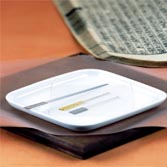What is it?
Formulae made from the roots, stems, bark, leaves or flowers of many plants, as well as some mineral and animal products. They are taken by over one billion people in Asia and have been used for thousands of years. There are over 400 herbs in use today. Chinese herbs are usually prescribed as a carefully balanced combination.
Herbology evolved into a healing art in China through observation and usage. This knowledge was compiled and passed down for refinement through the centuries. Herbs, like everything else in Chinese Medicine, are classified according to their energetic qualities and functions. They are defined with terms like warming, cooling, tonifying or purging which describes the overall energetic configuration of the herb.
How does it works? TOP
TOP
In some cases, a practitioner of Chinese medicine will design a specific formulation for an individual patient, which might be changed frequently over a course of treatment. In other cases, one or more formulas already prepared for ingestion without modification are selected for use. The outcome is monitored, and the determination of whether to continue the current formula, change to another, or discontinue use is made on the basis of actual versus desired outcomes and the obvious or subtle effects of using the herbs.
As a general rule, acute ailments (those that arise suddenly and are to be treated right away) are treated for a period of 1-30 days. If an outbreak of influenza or eruption of herpes virus is caught early enough, a one or two day treatment will prevent further development of the disease. In the case of acute active hepatitis causing jaundice, a treatment of 15-30 days may be necessary. For chronic diseases (those that have persisted for several months or years), the treatment time is often dependent on the dosage used and the ability of the individual to undertake all necessary steps to overcome the disease (perhaps changing diet, lowering stress, and increasing exercise). When a high-dosage therapy is applied, most chronic ailments can come under control (and some are cured) by a treatment of about three months duration. If the daily dosage is lowered (because of inability to take the higher doses), the treatment time increases-perhaps to 6-12 months. Examples of chronic ailments are autoimmune disorders and degenerative diseases associated with aging. In some cases, herbs are taken daily, for an indefinite period, just as some drugs are taken daily. This is typically the situation when there are genetic disorders or permanent damage that cannot be entirely reversed, problems of aging, and ailments that have been left for too long without effective treatment.
Health Benefits TOP
TOP
Generally speaking, Chinese herbs are safer than western pharmaceuticals and rarely have unpleasant side effects. A professional prescribing Chinese herbs is usually able to eliminate or substantially reduce symptoms such as nausea, insomnia or headaches in a relatively short time, but deep healing may take a good deal longer depending on the type of illness and duration. Herbs are concentrated food—their effect is very subtle and they work by assisting Nature and the body's own healing abilities.
Individuals that have a chronic illness and would like to try Chinese herbs should consult a Chinese physician that is knowledgeable and experienced in using the herbs. Those that would like to expand their culinary knowledge and taste experience can try experimenting to get to know qualities, texture, and taste. They can be purchased at an Oriental grocery store or Chinese pharmacy and relatively speaking are easy to use and inexpensive.
How to choose a Practitioner ? TOP
TOP
Kevin, Dai, California Licensed Acupuntruist, graduated from University of Chinese Traditonal Medicine, with 5 years' academy study (over 6,000 hours), including over 2,000 hours Western Medicine training. More than 10 years practical experience in China, Japan and USA with good experience. Now, he is also teaching Chinese Internal Medicine, Herb, and Herb Pharmacology at the University of East-West Medicine.


